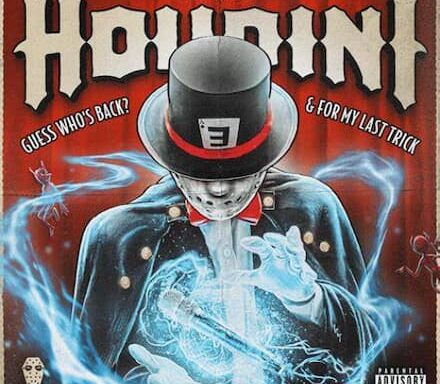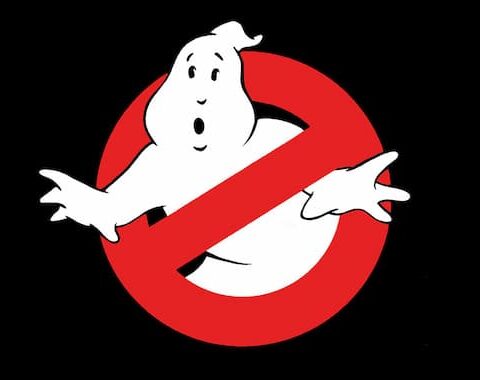X-Men Apocalypse isn’t quite the disaster some reviewers thought it was.
It isn’t particularly superb either. Like the recent Batman V Superman event, it is a movie that has some fun stuff in it, but is generally a mess that seems to groan under the oppressive weight of its own scale and ambition.
In ‘going big’, it flounders too much in spectacle and struggles to find its tone or meaning.
X-Men Apocalypse and BvS are in fact very similar films with almost identical failings. Both are very grand in scale and both climax with high-level special-effects orgasms as finales, but both are lacking in wit or charm and both fail to find a consistent emotional or thematic core.
I expected that more from BvS, due to the carry-over problems with the cinematic depiction of Superman.
With X-Men I didn’t expect it as much, as they’re well into the life of this franchise by now and they’ve done this before. But, of course, the X franchise has also messed up once or twice in the past too, so there was always that possibility.
There are palpable issues here with tone; the film is probably a little too grim for long stretches, lacking wit and dynamism. This is a significant drop in quality from Days of Future Past – a film that I loved. As with BvS, the pacing is a little awkward too and we kind of fumble about for a long while before ending with this big, overpowered finale sequence that – like the BvS finale – ends up feeling divorced from any great sense of reality.
After Days of Future Past – which I still think was genuinely wonderful – I wasn’t expecting such a dip in quality.
All of that being said, I don’t think X-Men: Apocalypse is quite as bad some people have made it out to be.
There is some fun stuff here: this isn’t a complete misfire. And it’s nothing like as bad as 2006’s X3: The Last Stand.
I also think the comparisons to Civil War and other movies didn’t necessarily help. Civil War is certainly more charismatic and ‘fun’, as one would expect at this point – and, by comparison, X-Men: Apocalypse is dark, brooding and moody. I will say, however, that as much as I enjoyed Civil War, there are a couple of moments in this movie that are more striking or absorbing than anything in Civil War, even if Civil War generally was better.
For the record, I didn’t think Civil War was a perfect movie either – it too had some weak points and some mistakes. And X-Men: Apocalypse is arguably a much more ambitious and bigger-scaled film – which isn’t necessarily a good thing, as this scale of it becomes cumbersome at times, causing the film to struggle and creak under its weight.
Strangely enough, as someone well-acquainted with the Civil War comic-book material, I was a little disappointed with how small-scale and basic the story was in that film: and, conversely, X-Men: Apocalypse finds it too difficult to deal with its own (attempted) weight and scale.
And it’s a pity.
I was probably more invested in this movie than any of the other recent superhero movies, including Civil War, Deadpool and Batman/Superman. X-Men was always my primary comic-book love as a kid, and these films have been with us for over fifteen years now, altogether making me feel more attached to the X-Men world than the other franchises.
And with this movie in particular, I had really been looking forward to seeing Apocalypse finally brought to the big-screen, as well as seeing one of my favorites, Psylocke, finally be given the proper cinema makeover she has warranted.
Both of those things, in the final mix, were delivered with some positives; but also with drawbacks – and combined with the general failings in writing and tone, justice hasn’t been done to the source material and its richer potential.
But I’ll highlight some of the good stuff in this movie first – because there are some genuinely good things in this movie.
For starters, I thought Apocalypse both looked and felt like Apocalypse. This could’ve been very misjudged; but, though much of the film could be regarded as misjudged, I think the presentation of Apocalypse himself – in aesthetic and visceral terms – worked okay for me.
What fails is the writing: his motivations and actions never feel real enough and that’s why it ends up feeling flat. It’s as if the writers felt that just having Apocalypse on screen would be orgasmic enough to satisfy everyone and nothing much more than that would be required. But, by the final third of the film, the novelty has worn off and it feels hollow.
But sorry, I’m meant to be in the positive section of the review here.
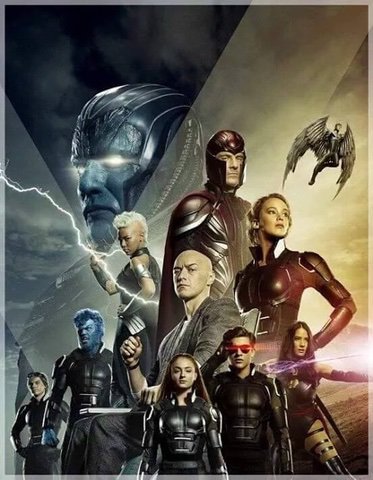
The opening sequence in Ancient Egypt with En Sabah Nur, though it probably suffers some lapses in logic or explanation, is a pretty absorbing way to start the movie, rich in atmosphere, mythology and visuals. It’s probably not as absorbing – or as cinematically superb – as the Days of Future Past opening, but it’s still a substantial opening sequence, placing this movie on a grander narrative scale than previous X-Men films.
I’m a little disappointed we didn’t get more of that era in Egypt. It might be partly because I’m presently reading the ‘Apocalypse Wars’ storyline in the current X-Men books and I’m really enjoying that setting. But also, the DOFP after-credits scene of the young Apocalypse being cheered by his followers actually made me think for two years that we were going to get a really in-depth story with a lot of focus on the ancient origins (which would’ve been great): and actually that tiny end-credit scene from DOFP was far more intriguing than almost anything we actually get in X-Men: Apocalypse – which is a bit sad.
Some of the later Apocalypse material is pretty good, particularly his early scene in Cairo where he meets the young Storm. That whole sequence is a high point; again partly for atmosphere, but also for the details. Alexandra Shipp’s Ororo Munroe is virtually instantaneously a massive improvement on the Halle Berry Storm.
But the details are good too; it is well established in X-Men lore that Ororo was a thief in Africa and spent time in Cairo, so having Apocalypse discover her here fits nicely. The scene where he follows her to her living quarters also hits all the right notes, from Mystique being lionised as a hero to the Star Trek episode ‘Who Mourns For Adonis?’ playing on the TV.
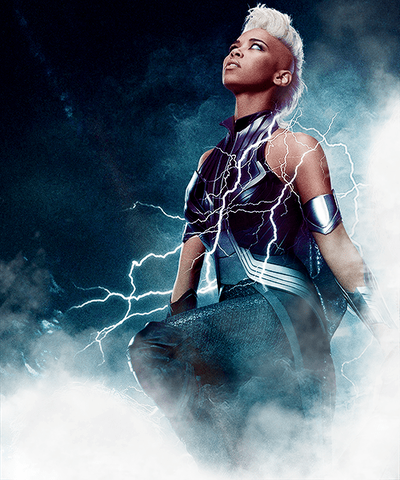
That’s the second consecutive X-Men movie with an original series Star Trek episode shown playing on the TV – in DOFP, it was logically a time-travel episode, while here it’s an episode in which Kirk and the Enterprise crew encounter an ancient Greek god (Apollo), who demands that they worship him as their ancestors did. Which, of course, chimes perfectly with the theme of this film’s ancient god, Apocalypse, and his plans for the world.
The scene where Apocalypse fuses someone into a wall in a Cairo back-alley is also pretty cool.
There are some other reasonable highlights too. The early Magneto material is fairly interesting, portraying him as a sympathetic figure trying to live a normal life, but having it taken away from him; the violence and the human mistrust of Mutants following him wherever he goes. There is something genuinely poignant about Eric trying to have this low-key life, working in a factory, but being sold out by his work colleagues. It effectively gets back to that permanent sense of otherness and unease when it comes to mutant/human relations in this world; that sense that, when you’re a mutant you really can’t rely on humans to look out for you, even a group of co-workers you’ve been working alongside for a good amount of time.
These scenes perhaps lacked some dramatic bite, but at their heart they were very much in keeping with classic X-Men themes.
Other highlights? Quicksilver gets his big ‘bullet time’ moment; and while it isn’t as fresh or revelatory to us or as endearing as the equivalent sequence in DOFP, it’s still a pretty cool set-piece. And in general, Evan Peters’ Quicksilver adds some extra life and wit into the film again and proves to be a necessity in that regard, with this being a movie otherwise lacking in humour.
Also, concerning the new, young versions of characters: some of this was reasonably good. Storm, as mentioned, is a big plus. Also Nightcrawler, who I was worried about before the film, comes off alright too – nothing like as endearing or charismatic as Alan Cumming’s version in X2, but what we get here works well enough for a teen Wagner. And Sophie Turner’s young Jean Grey works very well too – I liked her much more than I thought I would.
On the other hand, Psylocke and Angel were both wasted – just like in X3: The Last Stand. At least Psylocke looked a lot better this time and Olivia Munn was given a little to chew on – but for a character as bad-ass as Betsy Braddock, this really wasn’t good enough overall. I had genuinely been quite excited for a while about Psylocke being properly brought in to the movies; and when I’d started seeing images of Olivia Munn in the role and the costume, I had been optimistic.
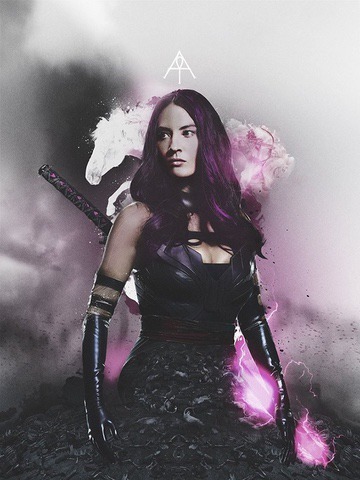
Munn is an excellent fit and she looks the part; I was also fairly glad that they’d brought in Psylocke’s classic look too. But there’s just not enough here to satisfy; she’s left as a bit-player with not much to do except look good on-screen.
That said, I did get a genuine kick out of watching her in the climactic action sequence, if only just for what she brings to the visual dynamics. But, as I was speaking of the similarities between X-Men: Apocalypse and BvS, Psylocke’s role in this mix is almost identical to Wonder Woman (Gal Gadot) in BvS; she’s kind of just there so that we can say “Look, it’s Psylocke!” or “Look, it’s Wonder Woman!”, and to be dropped into the big CGI battle/finale.
The luminous effects for Psylocke’s psionic powers are also pretty much identical to the Wonder Woman effects in the similarly CG-heavy battle/finale to BvS. And it does look great – I just wish we also got more character and substance to go along with it.
And Angel/Worthington was somewhere between pointless and awful – I actually think the Angel of X3 may even have been better than this. There’s no character or personality here for Worthington, other than a cheesy heavy metal thing going on. The scene that introduces him, where we find him fighting Nightcrawler, is pretty badly staged, lacking any cinematic quality (although the brief Blob cameo was a nice hat-tip to the fans).
I also wonder why – given the budget and the effects thrown at this film – they didn’t go the whole way and have Apocalypse properly, fully transform him into the classic 80s/90s Archangel. That way, he’d at least have looked awesome – as it is, he doesn’t need to be here at all.
But, on an optimistic note, I do feel that – if Fox wants to push on with this franchise – you could do something reasonably interesting in the absence of McCavoy, Fassbender and Lawrence, by centering on these younger characters, particularly the young Storm, Nightcrawler, Quicksilver and Jean. Those four could make a reasonably good start-point for a new bunch of stories that you could then build on, gradually bringing in other characters.
Sophie Turner’s Jean Grey, though not at this stage as engaging as Famke Jansen, was neverethless a pleasant surprise; Kodi Smit-McPhee’s Kurt Wagner is suitable, and Alexandra Shipp’s Ororo Munroe, as I said, is a massive improvement from our previous Storm.
Quite possibly, the biggest positive I take away from X-Men: Apocalypse is that some of these new, younger characters/actors have potential.
The big set-piece finale is genuinely a feast for the eyes; and I’m going to be positive about it.
There are one or two cheesy moments in it, and also it gets jarring at certain points. There are points where the vast CGI and massive visuals start to lose their potency and feel like a video game (again, as with Batman V Superman and Man of Steel) – this is increasingly a problem with some other big-budget movies too.
By comparison, the opening action/effects sequences in Days of Future Past were a lot more subtle, nuanced and clever and had more artistic value rather than just being an onslaught of effects and action.
But even so, this climactic sequence has a lot to recommend it.
At the peak points, the visual effects really are stunning. And some of the constituent elements offer some thrills: Jean having her great, flaming Phoenix moment has to be worth a fanboy cheer or three, Quicksilver getting to knock Apocalypse up a bit is a pretty fun moment, while Magneto’s redemptive moment of coming to the rescue – though it was choreographed far too early and thus had no surprise element or ROTJ Darth Vader poignancy (again, there’s no subtlety in this movie) – nevertheless felt vaguely good as an end-point for Erik Lenssher in this trilogy.
And, as disappointed as I am with how little substance she’s given in this film, we do at least get to see Psylocke looking and feeling like she should and being immersed in the action. I’ve been waiting for that for many years now – and she looks superb in this sequence, the same way Blink did in DOFP.
Aside from her costume and her look, they also visually got her psionic powers perfectly rendered on-screen (though she really should be much more athletic in the martial-arts area).
I also thought that having Charles confront Apocalypse in a psychic battle on the astral plane was a very interesting way to layer the conflict – providing a more interesting dimension to the fight conceptually, even if it didn’t quite work as dramatically well as it was intended to.
There are other good notes scattered about: the use of the second movement of Ludwig van Beethoven’s seventh symphony in one of the big-scale Magneto/Apocalypse moments is very effective, and is actually probably the most effective piece of music in the film.
That mostly covers the positives. And, admittedly, as I’ve been writing this, I realise every positive has had to have a ‘but’ attached to it: because even the good things in this movie are tangled up in not-so-good things.
There are several areas in which this film fails to capture the qualities of its two predecessors. One is in the script, which is lacking in wit and edge – which is, essentially, the same problem that undermined Batman V Superman.
Another is in the character dynamics, which are very lacklustre here in comparison to the other two films.
Probably the main issue, in that respect, is that the central psychologies of the two previous films – specifically Mystique, Charles and Magneto – feel more like hollowed-out chess-pieces in this movie.
This difference is remarkable; all three of them, especially Charles and Raven, were very layered and psychologically interesting in DOFP (and Magneto more so in First Class), where they felt like meaningful characters. Here, on the other hand, it honestly feels like they’re just present so that Fox can say Fassbender, McCavoy and Lawrence were in the movie.
The three of them also seem like they’re just here to collect their fees; they don’t imbue their scenes with any kind of passion or sincerity, except McCavoy in one or two moments.
There’s also a bit of a disconnect between the scale of the destruction and the stakes in the finale and any real or palpable sense of human cost. We are told Apocalypse can destroy the world (to make a new world in his image), and we should therefore assume that the human casualties and the material destruction should be significant. But we never get any sense of that.
We see an entire city appear to be destroyed (it isn’t clear to me whether multiple cities suffered or just the one), but there’s no reference to casualties, we never see any suffering or danger to ordinary people, nor any sense of what that destruction meant when all the action is over. We’re told Apocalypse is destroying the whole earth and this is supposed to be literally an apocalyptic event – but there’s no real evidence of that, no sense of a global crisis. Everything seems localised to one city, and even then the destruction is all visuals and no emotion or human element.
This kind of dissonance is perhaps becoming a common failing of superhero movies (and again, Batman V Superman is another perfect example of it); but one might expect better from Bryan Singer here, given how emotive and powerful the action sequences in Days of Future Past were.
On the other hand, Apocalypse showing Magneto the next level of his powers is pretty cool, as is the idea, conceptually, of Magneto reaching deep into the earth’s core to manipulate the metals and using his powers to control the magnetic poles. Magneto finding a new level to his power seems to be a recurring motif for these films, though this one probably isn’t as enjoyable to watch as the dramatic stadium-lift sequence in DOFP.
There are also plot-holes, problems in the franchise continuity and lapses in logic.
Great example: how the hell is Alex Summers still so young? First Class was set in 1963 and Alex was at least twenty at that point: this is now 1983, meaning he should be about forty. He should at least look like an adult and not still a young adolescent; but Singer seems not to bother with those kinds of details, just like there’s no reference to the fact that DOFP‘s finale showed Wolverine being captured by Mystique (posing as Stryker), but yet there’s no follow-through or any sense of why.
It’s as if the filmmakers by this point are so assured of major box-office returns that they can just be lazy with logic and continuity.
There is also a major lack of subtlety in places: Magneto literally making a giant X in the final battle, for example, or a completely unnecessary Wolverine/Weapon-X cameo being shoe-horned in to the film for no real reason (complete with the really cheesy shot of Wolverine running out into the snowy wilderness: which almost looked like a parody). It occurred to me, when I thought about it later, that the entire business of Raven, Quicksilver, Nightcrawler and co being taken by Stryker and held at the Weapon X facility actually served no purpose in the main narrative: the only reason for that sequence of events was apparently to make sure we had the Wolverine cameo.
Again, not subtle or clever.
And, on the same note, why is Bryan Singer so obsessed with William Stryker? Stryker is an extremely minor character in the comic-book mythology. The main reason he was brought into X2 in 2002 was because he was a cheap villain, budget-wise, as he didn’t require prosthetics or CGI. And Brian Cox brought a lot of charisma to that character in X2; but is Stryker really interesting enough to have been brought back for the X-Men Origins: Wolverine movie and now X-Men: Apocalypse too?
In a cinematic franchise where there are still a whole lot of really cool or interesting X-Men characters or villains we’ve yet to see, Stryker is a remarkably dull fixture to keep bringing back.
On the other hand, and sticking with the subtlety theme, having Magneto literally reduce Auschwitz to rubble might be seen by some as very unsubtle. But I actually think it works alright. It isn’t as powerful a moment, thematically, as it should be: but it does have a sense of closure for Erik as a character.
What also might’ve aided this movie (in addition to better writing, better scripting, and more charm) would’ve been more of the same style of period-specific, retro homage that we got in both First Class and DOFP. XFC thrived on its pronounced sixties vibe and DOFP – though not as pronounced – definitely played on its 1973 setting; X-Men: Apocalypse, however, doesn’t particularly feel like a story set in 1983 in any significant way. Other than us being told, that is; and the Return of the Jedi reference isn’t quite enough.
I’m not suggesting this movie should’ve been turned into The Goldbergs, but it definitely needed a little more in that respect.
All in all, X-Men: Apocalypse is a disappointing drop in quality after what was a genuinely superb X-Men movie in Days of Future Past. In trying to be so big in scale, it unfortunately loses some of the heart and soul of what makes the X-Men mythology so interesting and endearing.
As a big-budget superhero spectacle, however, it does work in parts. And there are some good moments here. But it’s time for Bryan Singer to go; and for a new direction to be considered. A final point I should add here is that I enjoyed the film a lot more the second time than I did the first time. Once you know what this film’s failings are, it’s easier to account for that and just watch the film again for its good points.
But, man, with a cast as good as this, a budget as big as this, and a film that introduced both Apocalypse and Psylocke, they really needed to do better than this.

